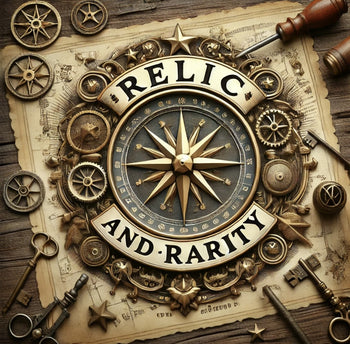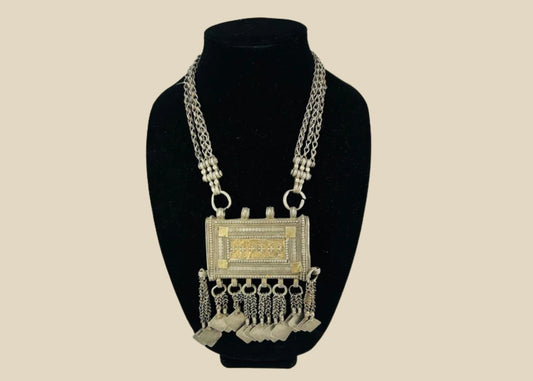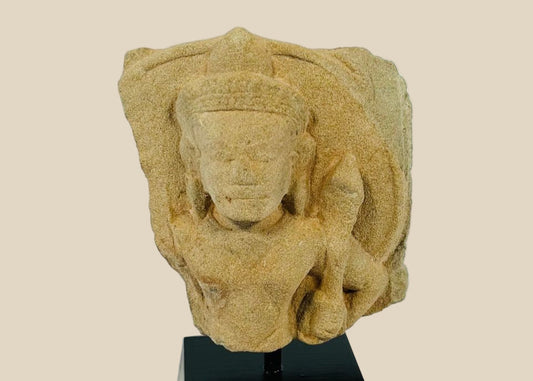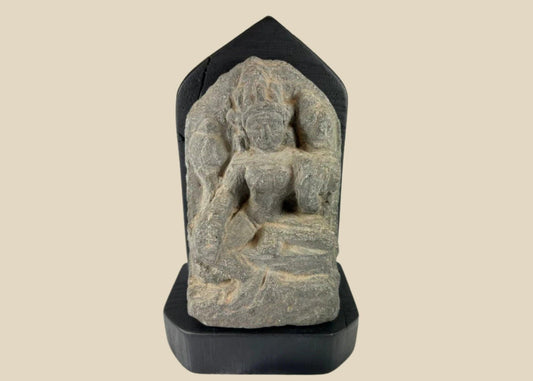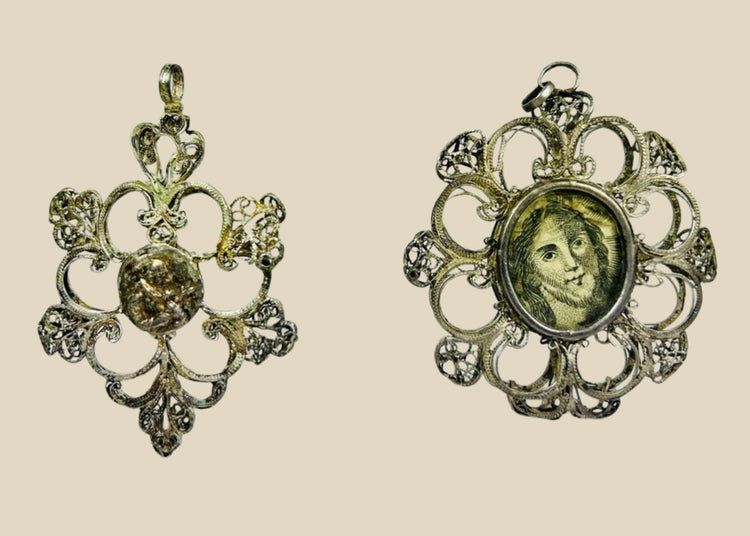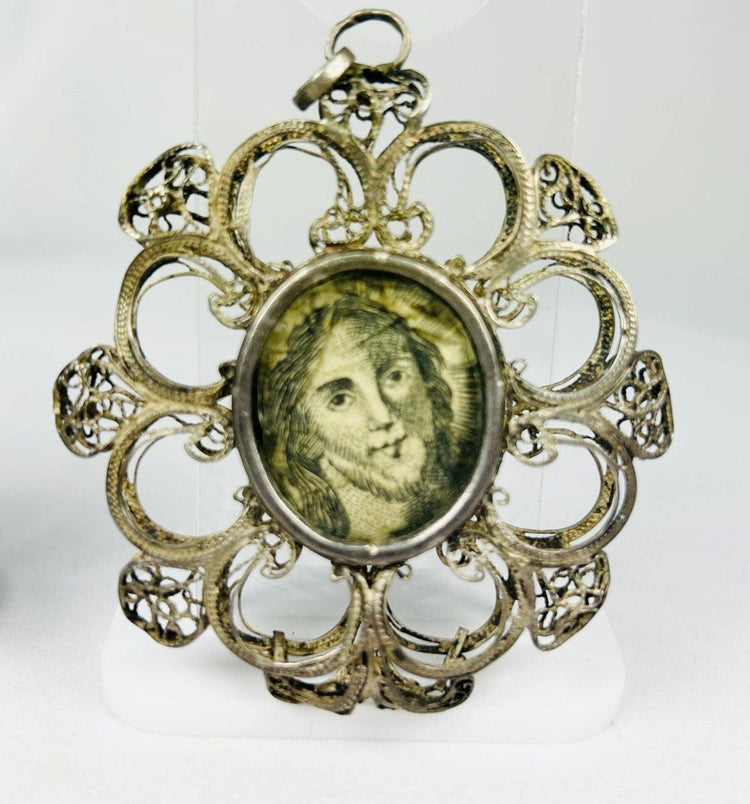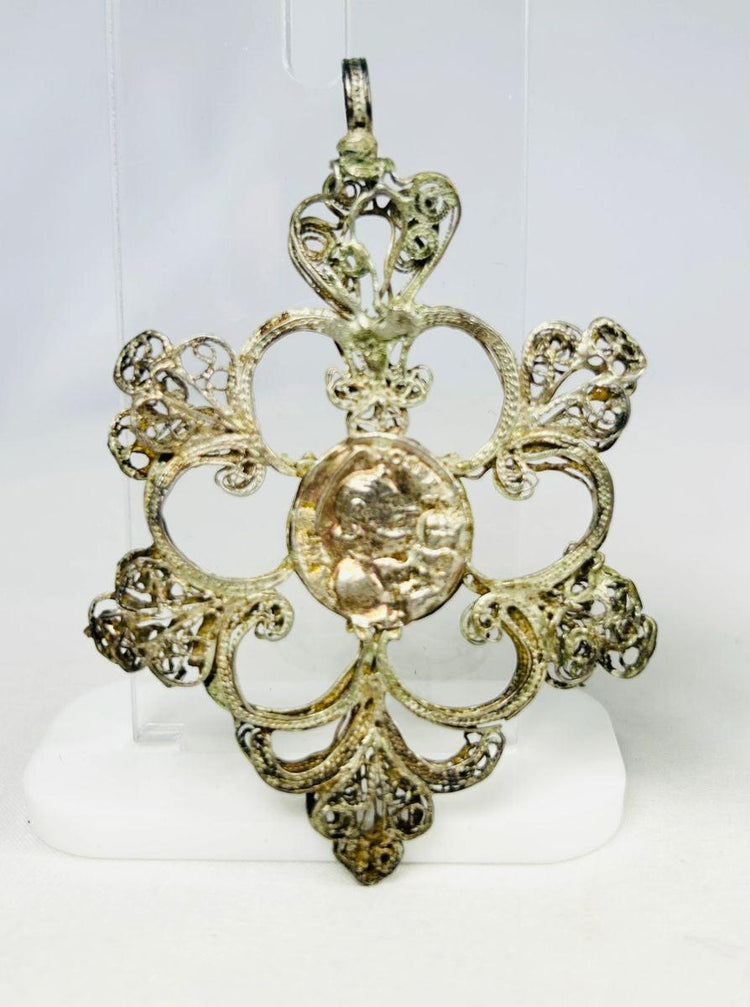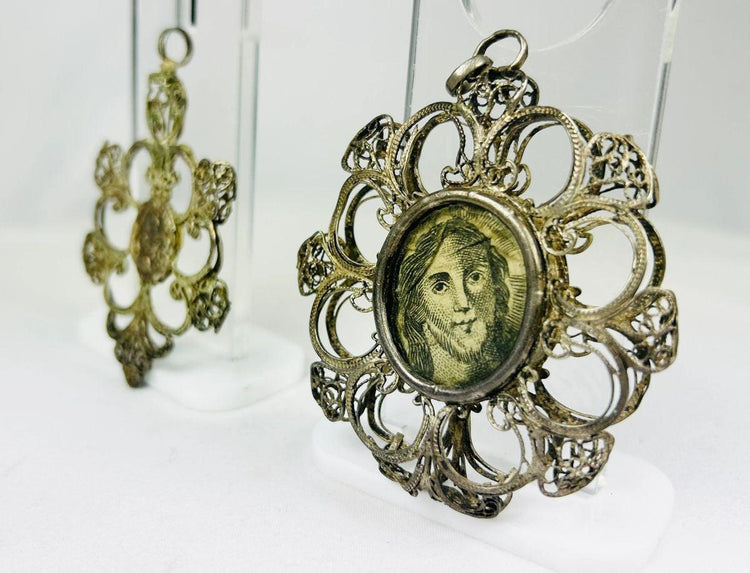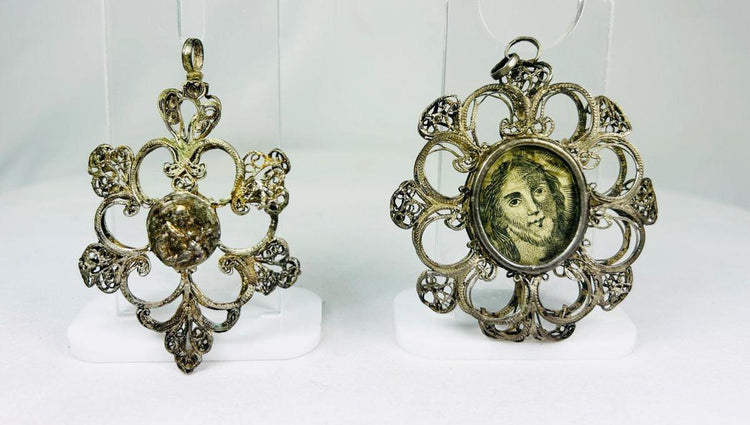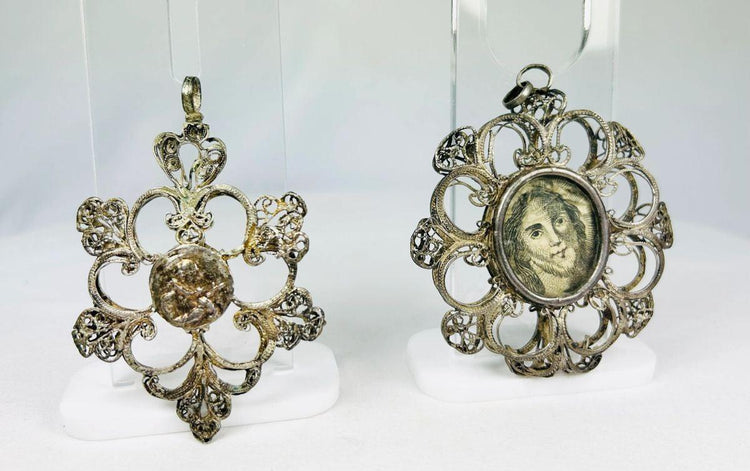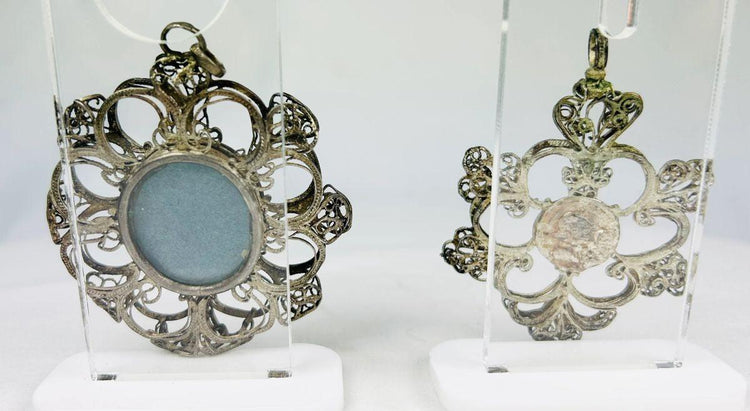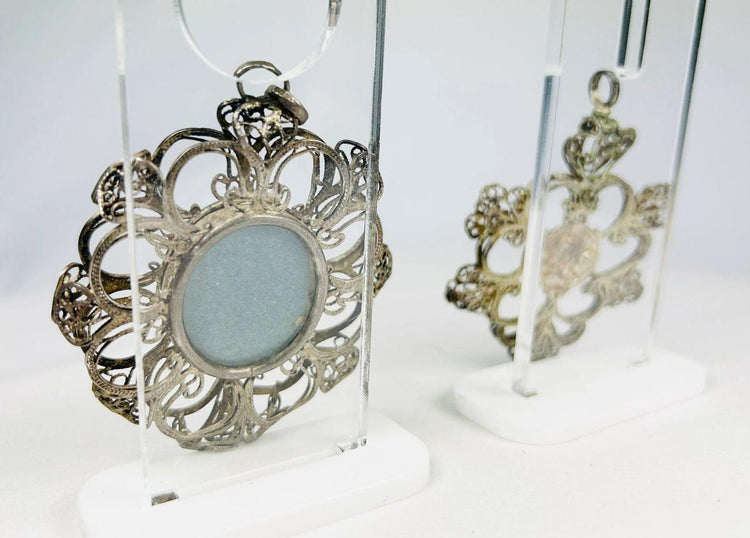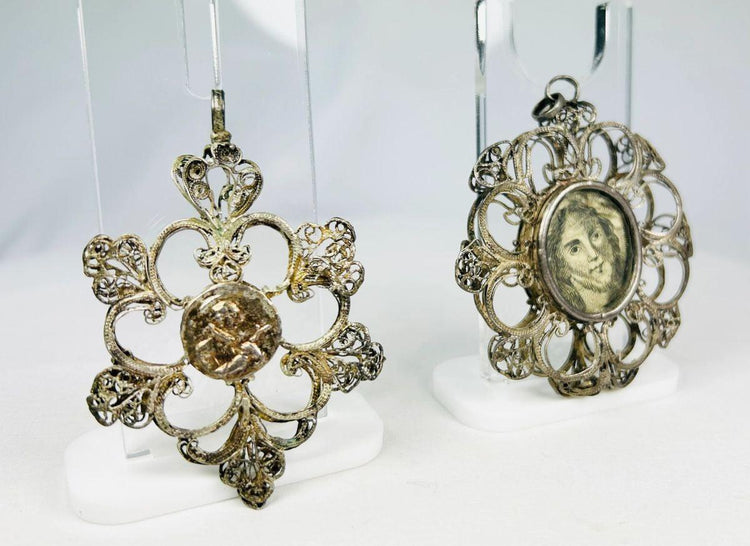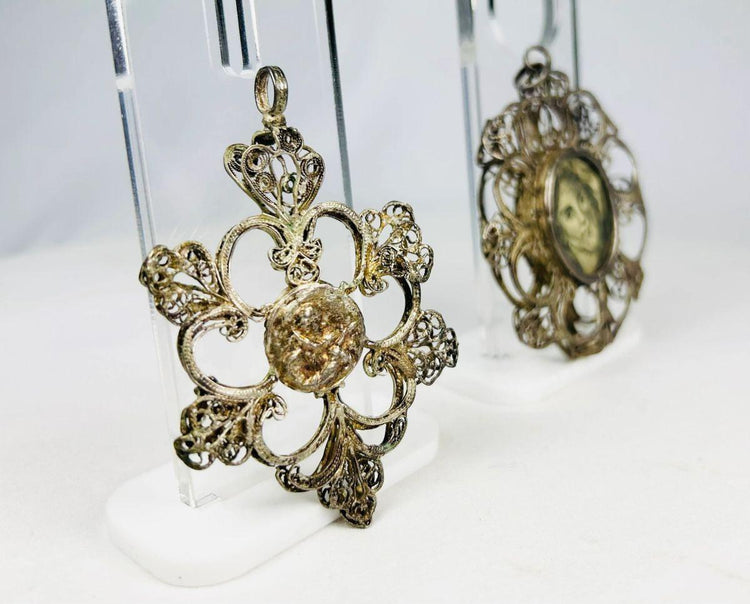Pair of Southern European Devotional Pendants | Silver Filigree with Christ & Saint Medallions | Late 19th Century
Description
More
Less
Historical Context & Origin
Region: Southern Europe (likely Italy or Spain)
Material: Silver or silver-plated filigree with glass and repoussé medallion
Period: Late 19th Century
Description
This pair of devotional pendants reflects the Catholic traditions of Southern Europe, where sacred objects were deeply integrated into both public worship and private devotion. Each pendant is framed in ornate filigree scrollwork with floral motifs, finely hand-soldered in silver or silver-plated metal. One features a delicately engraved image of Christ preserved under glass, likely adapted from a holy card or devotional etching. The other bears a repoussé medallion, possibly depicting a saint or cherub, rendered in relief. Both pendants were designed with suspension loops for wearing on chains or for placement on small altars, serving as tangible symbols of faith and reverence.
Features
- Ornate filigree frames with intricate floral scrollwork
- Engraved image of Christ under glass in one pendant
- Repoussé medallion design, possibly of a saint or cherub, in the other
- Suspension bails for wearing or devotional use
- Fine craftsmanship typical of 19th-century Catholic devotional art
Cultural Significance
Such pendants were representative of Catholic devotion during the 19th century, particularly in Italy and Spain. While not reliquaries in the strict sense, they often served as sacred objects of personal veneration, sometimes housing holy images or symbolic representations. Their design embodies the artistry and religious symbolism of the period, linking them to broader traditions of European Catholic heritage.
Condition
Light tarnish and patina consistent with age, enhancing their antique character. Minor surface wear to the filigree, but glass and imagery remain intact. Structurally sound and display-ready.
Dimensions (approximate)
Height: 3 in (each pendant)
Age
Approx. 100–140 years old
Learn More
Discover the ancient history and origins of pendants
Browse our spiritual and religious relics from cultures around the world
Description
Historical Context & Origin
Region: Southern Europe (likely Italy or Spain)
Material: Silver or silver-plated filigree with glass and repoussé medallion
Period: Late 19th Century
Description
This pair of devotional pendants reflects the Catholic traditions of Southern Europe, where sacred objects were deeply integrated into both public worship and private devotion. Each pendant is framed in ornate filigree scrollwork with floral motifs, finely hand-soldered in silver or silver-plated metal. One features a delicately engraved image of Christ preserved under glass, likely adapted from a holy card or devotional etching. The other bears a repoussé medallion, possibly depicting a saint or cherub, rendered in relief. Both pendants were designed with suspension loops for wearing on chains or for placement on small altars, serving as tangible symbols of faith and reverence.
Features
- Ornate filigree frames with intricate floral scrollwork
- Engraved image of Christ under glass in one pendant
- Repoussé medallion design, possibly of a saint or cherub, in the other
- Suspension bails for wearing or devotional use
- Fine craftsmanship typical of 19th-century Catholic devotional art
Cultural Significance
Such pendants were representative of Catholic devotion during the 19th century, particularly in Italy and Spain. While not reliquaries in the strict sense, they often served as sacred objects of personal veneration, sometimes housing holy images or symbolic representations. Their design embodies the artistry and religious symbolism of the period, linking them to broader traditions of European Catholic heritage.
Condition
Light tarnish and patina consistent with age, enhancing their antique character. Minor surface wear to the filigree, but glass and imagery remain intact. Structurally sound and display-ready.
Dimensions (approximate)
Height: 3 in (each pendant)
Age
Approx. 100–140 years old
Learn More
Discover the ancient history and origins of pendants
Browse our spiritual and religious relics from cultures around the world
You May Also Like
